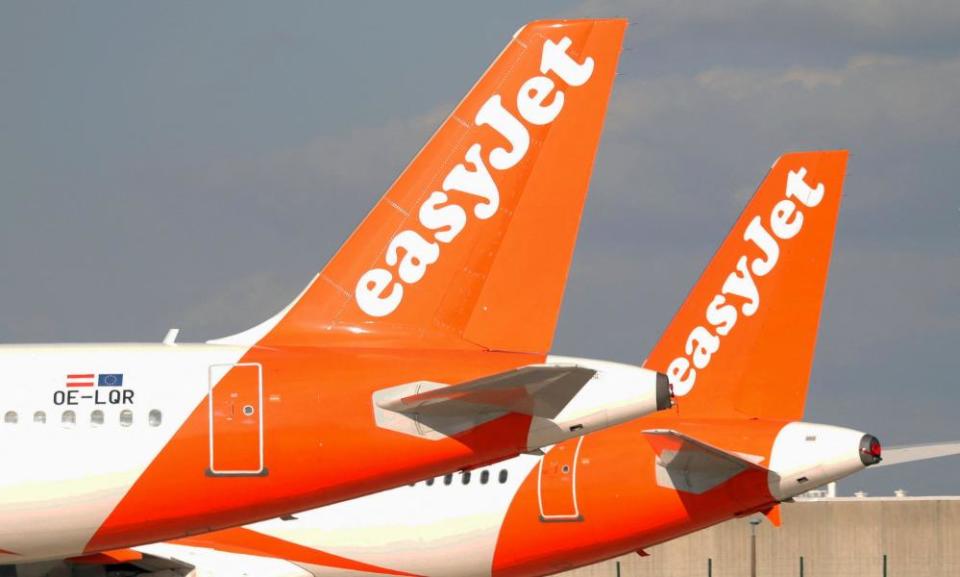EasyJet returns to profit but Israel-Hamas war reduces bookings

EasyJet has experienced a general drop in bookings since the Israel-Hamas war started, which prompted it to pause flights to Israel and Jordan, but said demand was coming back and consumers were keen to holiday abroad next year.
Johan Lundgren, the budget airline’s chief executive, said: “As we saw with Ukraine, there has been a short-term industry-wide impact on [flight] searches and bookings, though this now seems to be coming back with a recent improvement in trading.”
Like most other airlines, easyJet temporarily paused flights to Israel and Jordan, which together with Egypt made up 4% of its winter flying programme.
Related: Can UK’s ‘jet zero’ hopes take off with a plane fuelled by used cooking oil?
Lundgren said that summer bookings were “looking strong”, continuing a post-pandemic bounceback in demand for travel, with traditional destinations such as Antalya in Turkey, Mallorca and the rest of the Balearics, and the Greek islands particularly popular. Over the winter, the Canaries and Lapland are in demand while Christmas and ski bookings were “looking very good”, according to the easyJet boss.
Lundgren pointed to research commissioned by easyJet that shows more than two-thirds (67%) of UK consumers have said they are more likely to travel abroad in 2024 than in 2023. He also said the average air fare had risen by £9 from 2022. The airline is launching new bases in Alicante and Birmingham next spring.
He added: “Demand looks very strong – and we can see that particularly in easyJet holidays, [which] is up now over 30% year on year, and that’s an early barometer for the demand.”
After a record summer, easyJet made an adjusted pre-tax profit of £455m in the six months to 30 September, which was better than expected, and compares with a loss of £178m a year earlier. It carried 19% more passengers, a total of 83 million people, and revenues rose 42% to £8.2bn. Growing ancillary revenues, such as seat selection and onboard food, have now added almost £12 a passenger since 2019.
EasyJet reinstated its dividend for the first time since the Covid-19 pandemic and will pay 4.5p a share in early 2024. Its share price rose 2% on the news.
Sophie Lund-Yates, an analyst at Hargreaves Lansdown, said: “EasyJet is adamant that households will continue to prioritise travel in the new financial year. There are early indication’s that’s true, but that could change at short notice if the UK folds into recession. The conflict in the Middle East also has the potential to dent performance and will need monitoring closely.
“The good news for easyJet is that its problems are all outside of its control, which tells the market that its proposition is about as good as it can be – and is waiting to take off once conditions allow.”
The carrier had already ordered 158 A320 planes from Airbus for delivery in the years up to 2029, and has struck a conditional deal for a further 157 A320 and A321 jets between 2029 and 2034, as it replaces half its A320 fleet.

 Yahoo Finance
Yahoo Finance 